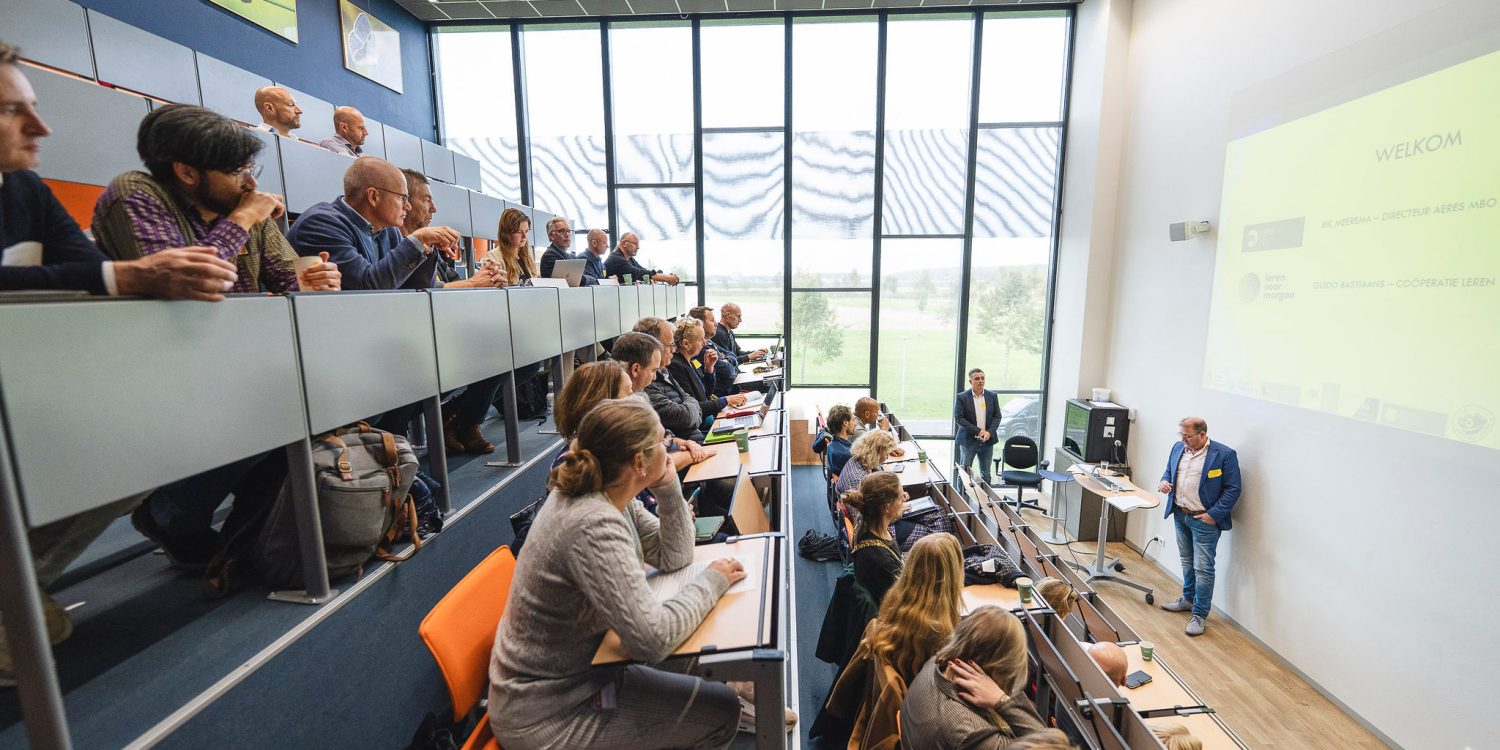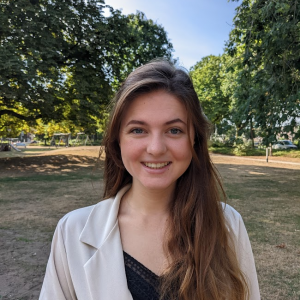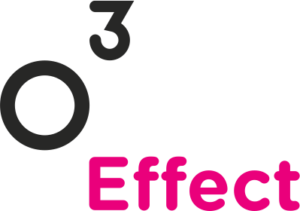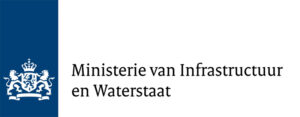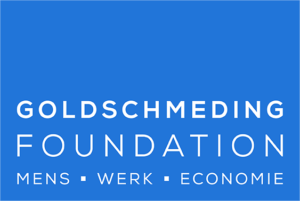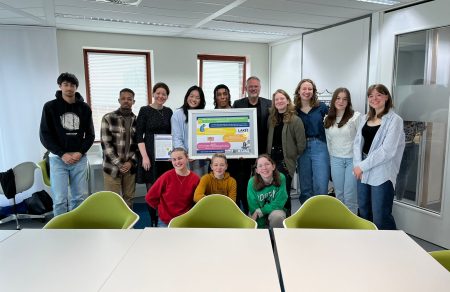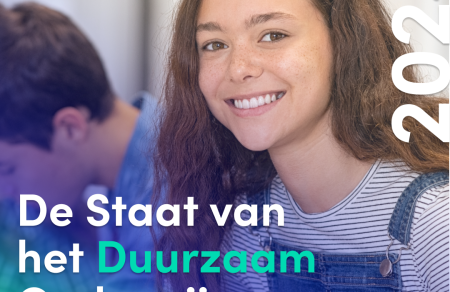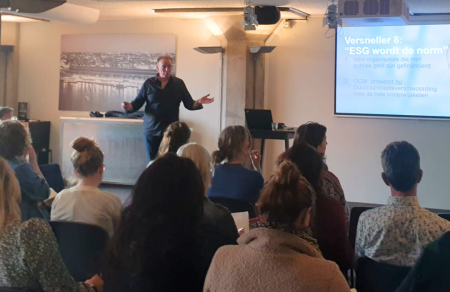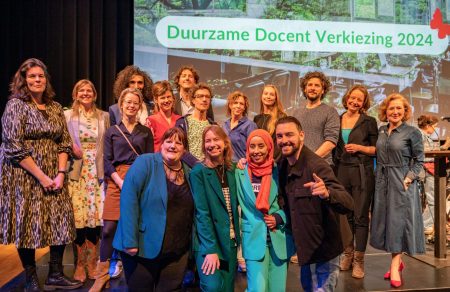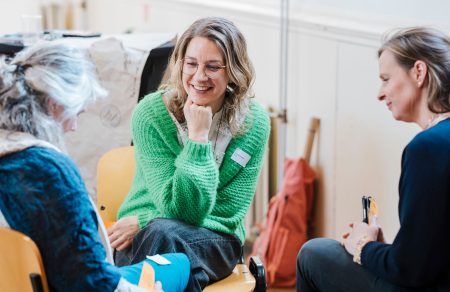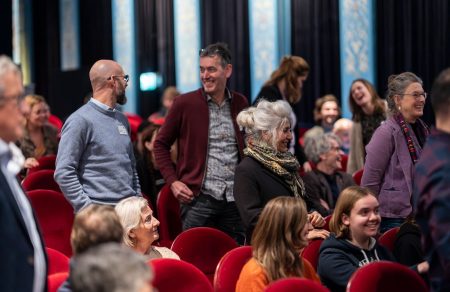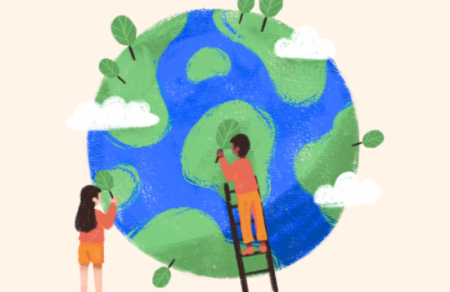The day begins with a warm welcome by Rik Meerema, director of the Aeres MBO Almere, and Guido Bastiaans, project leader in the Sustainability Skills program of Cooperative Learning for Tomorrow. They explain that a Circular Regional Economy emphasizes the importance of collaboration to maximize the lifespan of products and raw materials. In this context, education plays a crucial role in training future professionals who can achieve this economic transition. We can do this by equipping them with sustainable skills and collaborative learning in transition. Meerema: "We educate green changemakers; who engage with heart and common sense to be better for people, animals, the environment and society every day."
Why work on circular skills?
Pitches by Kitty van Zijtveld (lecturer and study leader sustainable business Aeres Hogeschool), Duco van Kleij (coordinator sustainability and environment at van Wijnen), and Marjolein Sijtsma (MBO-4 student Social Care at MBO College Lelystad), emphasized the importance of developing circular knowledge and skills. What emerged in all pitches is how students can be encouraged to be involved in sustainability initiatives that match their future profession, so that they can later apply this knowledge in their work. A great example of this was shown in a video of the hackathon "Reshape the Future" at Windesheim University of Applied Sciences. Here, students were asked to come up with creative solutions for the reuse of residual streams. Here they learned interdisciplinary collaboration on a sustainable task.
Shaping regional cooperation
Keynote speaker Vincent Zijlstra, program manager of the Bouwacademie Amsterdam, took us through his experiences in setting up circular regional collaborations. This starts from the enormous ambitions and developments to which education can contribute. A collaboration between the Bouwacademie, Bouwmensen, Gemeente Amsterdam, Bouwend Nederland and the ROC van Amsterdam, and later TNO and TU Delft, led to the bringing together of all construction education under one roof and a project plan for making the built environment more sustainable in which education and research are connected. Zijlstra: "We translate the results into education. For example, TU students design new facades and other students make working drawings based on these designs. Those working drawings then go to the carpentry course, where the students work on implementation." Zijlstra also stressed the importance of cooperation between regional parties. In doing so, he indicated that in his experience, the innovation network established had a catalytic effect on regional connection.
Knowledge snacks of your choice!
Then participants could join three "knowledge snacks of their choice. On the menu were: Spark the Movement for broad education-business collaboration; circular skills and the CRE Toolbox; and teacher professionalization with expedition sustainable.
Heleentje Swart told about the program "Spark the Movement" to invite education to collaborate on broad prosperity with others in the area. She emphasized therebi the importance of a common language and collaboration between different generations and functions: students, teachers, businesses, school leaders and others. At three levels, different tools can provide support: the Inner Development Goals at the personal level, the Whole School Approach to Learning for Sustainable Development at the organizational level, and the UNESCO ESD 2030 at the regional level.
Joost van Blanken and Fleur Broer together presented the CRE Toolbox. Developed by the practorate of the same name, this toolbox serves as a package of resources to bring sustainability and circularity into the classroom and the teaching team. The toolbox includes more information on the foundation of circular thinking and doing and practical tips around teaching materials, company visits, professionalization, inspiration sessions with teacher teams, guest lectures, challenge-based learning and sustainable internship assignments.
Roeland Westra shared more about bringing teachers along. They are key in the movement toward sustainability. He takes teachers with him on sustainable expeditions outside the school to professionalize in this area. Westra: "I took them to the edge of the IJsselmeer, where they followed a program on themes such as circularity. They also got to work on formulating their own practical questions in line with the training, which they can then use again in education."
How do we want to work together in Flevoland?
After touching on the urgency, hearing Vincent Zijlstra's experience and the knowledge gained from the "knowledge snacks," we split into two groups. The teachers' discussion table explored whether a continuous learning line could be developed in this area. We first considered what we mean by a continuous learning line. Within various courses there are already quite a few learning lines around CRE themes, but it is difficult to realize this between courses as well. What is needed now is a more shared language where we all understand what it is all about. We also need to engage more with students and with each other to foster a positive and hopeful mindset to work on sustainable issues. To facilitate this, backing from the board and management is very much needed. The discussion table for school board and management discussed ambitions and the questions and needs at play. The ambitions of the institutions were discussed and there is a need for more visibility of the initiatives and cooperation in the region. Again, it emerged that for collaboration, common language is a starting point. What do we mean by cooperation? And what exactly are we going to work on? A follow-up is to figure that out together and give it direction (based on a common starting point), and to connect these things to the lines that are already running.
*It Flevoland Consortium is part of Sustainability Skills and currently consists of Aeres, Firda, Helen Parkhurst, Windesheim, MBO College Lelystad, ROC van Flevoland, Porteum, Learning for Morgeen and O3-Effect. If you would like to join this, please contact Guido Bastiaans.
